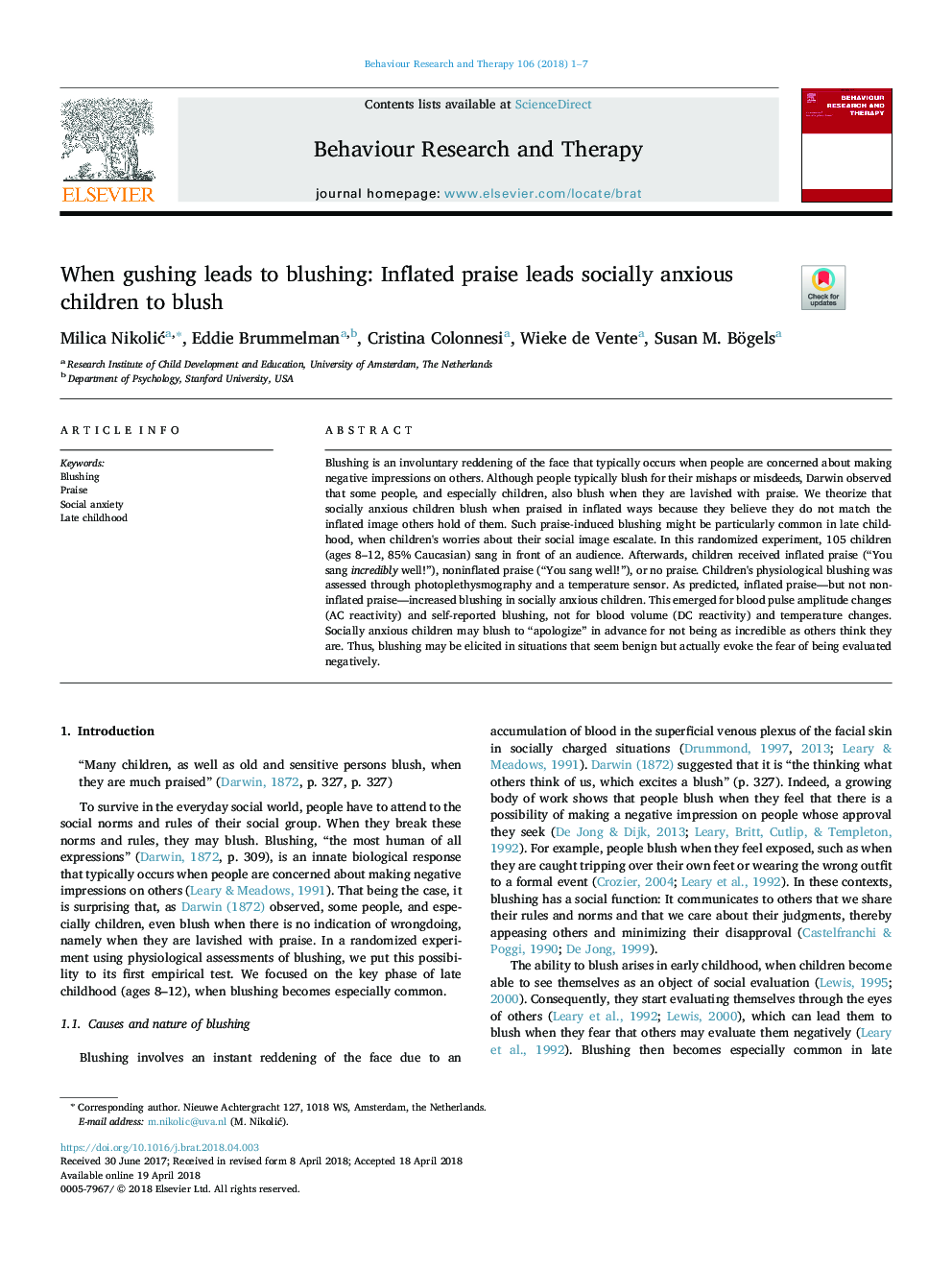| کد مقاله | کد نشریه | سال انتشار | مقاله انگلیسی | نسخه تمام متن |
|---|---|---|---|---|
| 7261795 | 1472743 | 2018 | 7 صفحه PDF | دانلود رایگان |
عنوان انگلیسی مقاله ISI
When gushing leads to blushing: Inflated praise leads socially anxious children to blush
ترجمه فارسی عنوان
زمانی که خوردن باعث ایجاد سرخوش می شود: ستایش پر از تحریک، باعث می شود بچه های مضطرب اجتماعی به سرخ کردن برسند
دانلود مقاله + سفارش ترجمه
دانلود مقاله ISI انگلیسی
رایگان برای ایرانیان
کلمات کلیدی
خجالت زدگی، ستایش اضطراب اجتماعی، دوران کودکی
موضوعات مرتبط
علوم پزشکی و سلامت
پزشکی و دندانپزشکی
روانپزشکی و بهداشت روانی
چکیده انگلیسی
Blushing is an involuntary reddening of the face that typically occurs when people are concerned about making negative impressions on others. Although people typically blush for their mishaps or misdeeds, Darwin observed that some people, and especially children, also blush when they are lavished with praise. We theorize that socially anxious children blush when praised in inflated ways because they believe they do not match the inflated image others hold of them. Such praise-induced blushing might be particularly common in late childhood, when children's worries about their social image escalate. In this randomized experiment, 105 children (ages 8-12, 85% Caucasian) sang in front of an audience. Afterwards, children received inflated praise (“You sang incredibly well!”), noninflated praise (“You sang well!”), or no praise. Children's physiological blushing was assessed through photoplethysmography and a temperature sensor. As predicted, inflated praise-but not non-inflated praise-increased blushing in socially anxious children. This emerged for blood pulse amplitude changes (AC reactivity) and self-reported blushing, not for blood volume (DC reactivity) and temperature changes. Socially anxious children may blush to “apologize” in advance for not being as incredible as others think they are. Thus, blushing may be elicited in situations that seem benign but actually evoke the fear of being evaluated negatively.
ناشر
Database: Elsevier - ScienceDirect (ساینس دایرکت)
Journal: Behaviour Research and Therapy - Volume 106, July 2018, Pages 1-7
Journal: Behaviour Research and Therapy - Volume 106, July 2018, Pages 1-7
نویسندگان
Milica NikoliÄ, Eddie Brummelman, Cristina Colonnesi, Wieke de Vente, Susan M. Bögels,
